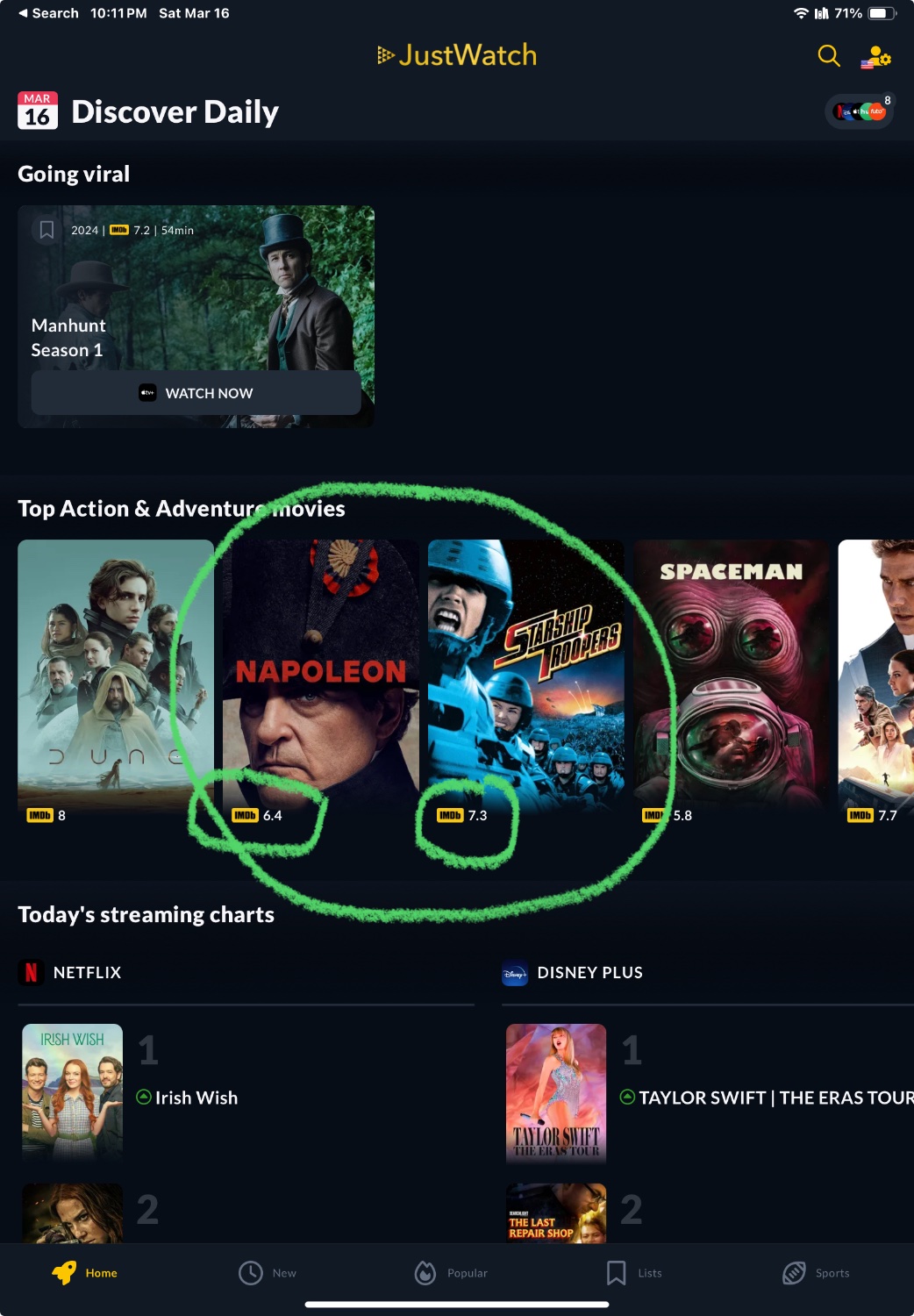this post was submitted on 17 Mar 2024
85 points (83.5% liked)
Movies and TV Shows
2122 readers
63 users here now
A community for entertainment industry news and general discussion about movies and TV shows.
Rules:
- Be civil.
- Please do not link to pirated content.
- No spoilers in the title of submissions. And please use spoiler MarkDown in the body of discussions. This is a courtesy to other users.
- Comments solely criticizing headlines and/or journalism will be removed for being off-topic.
founded 1 year ago
MODERATORS
you are viewing a single comment's thread
view the rest of the comments
view the rest of the comments

Everyone always says that it was satire, but after numerous viewings, I have never been able to figure out exactly what it is satirizing.
Not to mention military industrial complex and how disposable enlistees are in a war that they may have been the aggressors for, but are told they are being righteous. They make sure to show the casualties and maimings too.
See Israel/Palestine and Russia/Ukraine for current context.
.
Paul vehoeven, the director, was born in 1938 and witnessed the Nazis come, albeit as a child.
Off the top of my head, a big one is that most of the people living in Buenos Aires, Argentina, are blond haired and blue eyed. Argentina, being a famous refuge for Nazis post-WWII. Almost like they won in the end.
The book of the same name by Robert Heinlein, which makes the case for a "just and fair" fascist state.
Heinlein himself wasent a fascist, just a space cadet 60/70s scifi writer, but that is a theme of the book.
That isn't the theme, and it wasn't a fascist state in the novel. Or at least that wasn't the intention, and we see no particularly damning evidence otherwise. Don't get your literary interpretations from Reddit.
That said, this is a pretty good write up on it.
https://www.kirkusreviews.com/news-and-features/articles/robert-heinleins-starship-troopers-cold-war/
What it ignores is that "Johnny" Rico is actually Juan Rico, a child of Filipino immigrants to Buenes Aires. Heinlein would often write his characters to be racially ambiguous until a reveal at the end. Not that big a deal today, but consider the impact on a reader from 1960.
The "service guarantees citizenship" isn't great, but it also is much better in the novel than the movie. The movie portrays it as control method for a military controlled society, in the novel "service" is public service.
Social workers, teachers, librarians, civil servants of all types, doctors, nurses, all earned citizenship as well, it wasn't a facade for a military junta. Not the best (fuck the state) but there was a program like modern Germany's year of service for people that didn't want to go into the military.
The best way to consider Heinlein at the time was a liberal hawk. One scared of the R E D S and deeply concerned that losing the arms race would lead to the Soviets conquering the world.
If you want to speculate on what Heinlein would have been if he was born German instead, or even what would happen if you cut his liberal skin, fair enough, but he was also an anti-racist who strongly believed in democracy and was a product of a world where the threats to that democracy were Hitler and Stalin.
Yeah dude I read the book, but way to whip out "dont get your summation from reddit" to try to minimize someone's critique of an old, and generally poor, scifi novel. A novel that did, very clearly, attempt to make a "justification" for a facist state. Was it a though experiment for Heinlein? You bet, but it still is what it is. His writing is what the movie is satirizing.
I called Heinlein a space cadet, not a fascist. If I thought he was a fascist, I would have called him one. As to the "space cadet," aint no one writing "stranger in a strange land" without walking on moonbeams first.
Some people really need fascist states to be pinky promise not actually fascist. Or for fascist states to be good actually.
It's too bad stuff like starship troopers and helldivers brings em out, kinda sucks the fun out of laughing at rico and co.